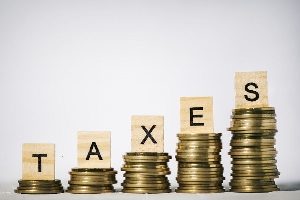- Home - News
- TWI News | TV
- Polls
- Year In Review
- News Archive
- Crime & Punishment
- Politics
- Regional
- Editorial
- Health
- Ghanaians Abroad
- Tabloid
- Africa
- Religion
- Election 2020
- Coronavirus
- News Videos | TV
- Photo Archives
- News Headlines
- Press Release
Regional News of Thursday, 15 March 2007
Source: GNA
Call for a break in the state discrimination against private schools
Sunyani (B/A) March 15, GNA - A number of popular schools of thought have attempted to define education from different perspectives but all agree that education is the greatest explosive force that could effect desirable social human development. This buttresses the assertion that learning is said to have taken place when there is a change in behaviour and since the school is the institution responsible for teaching and learning, its role in human development cannot be over-emphasized.
From Wikipedia encyclopedia, schools existed as far as back as Greek times if not earlier. Islam was one of the earliest cultures to develop a schooling system in the modern sense of the word as it puts a lot of emphasis on knowledge and had to develop a systematic way of teaching and spreading knowledge in purpose-built structures.
At first the mosque combined both religious performance and learning activities, but by the tenth century the Seljuks introduced the first school or Madrassa as it was called in Arabic, a proper school built independently of the mosque. They were also the first to make the school or Madrassa system of a public domain under the control of the Caliph. The Nizamiyya Madrassa is considered by consensus of scholars to be the earliest surviving school, built towards 1066 CE Emir Nizam Al-Mulk.
Under the Ottomans, learning was given a new dimension as towns of Bursa and Edirne took over as the main centers of learning respectively. The Ottoman system of Kulliye, a building complex containing a mosque, a hospital Madrassa, and public kitchen and dinning areas, was indeed revolutionary making the learning accessible to a wider public through its free meals, health care and sometimes free accommodation.
In Europe during the Middle Ages and much of the early modern period, the main purpose of schools (as opposed to universities) was to teach the Latin language. This led to the term grammar school, which in the United States is used informally to refer to a primary school but in the United Kingdom means a school that selects entrants on their ability or aptitude.
Following this, the school curriculum was gradually broadened to include literacy in the vernacular language as well as technical, artistic, scientific and practical subjects.
The size and scope of schools varies depending on the recourses and goals of the communities that provide for them. A school might be simply an outdoor meeting where one teacher comes to instruct a few students, or, alternatively, a large campus consisting of hundreds of buildings and tens of thousands of students and educators.
The basic unit of a school building is generally the classroom, where the act on instruction takes place. Other places typically found in schools include, a cafeteria, sporting facilities, auditorium, offices, library and laboratories. Boarding schools where students live full-time among their peers also include dormitories.
Most modern states consider it a duty of the government to provide at least a basic education to the children of its citizens. For this reason, many schools are owned or funded by states. Private schools are those, which are operated independently from the government. Private schools usually rely on fees paid by families whose children attend the school for funding; however, sometimes such schools also receive government support.
Many private schools are affiliated with a particular religion; these are known as parochial schools in the United States of America. In the UK most schools are publicly funded and are known as state schools or maintained schools in which tuition if provided free. There are also private schools or independent schools that charge fees. Some of the most selective expensive schools are private. (Wikipedia Encyclopedia).
In Ghana our history of education has seen the missionary institutions, the local authority schools and private schools, all coexisting. At the basic level the most expensive but also the most sought after schools are private, giving rise to the general and sometimes erroneous belief that private schools are profit-making business enterprises that need no support.
This is not only hypothetical but has unfortunately led to the sidelining, neglect and discrimination against the sector as, if even they are, it is not any justifiable basis for subjecting the children in particular and the institution in general to selective and discriminatory ordeals, considering their immense contribution to the human resource development of the country, the core of development of the economy and indeed the development of any country.
This stance of the state runs contrary to the nation's much trumpeted pride of being the first country in the world to ratify the United Nations Convention on children's rights.
Private schools form 20 per cent of basic schools and contribute more than 60 per cent of the total intake into the so-called endowed second cycle schools but government policies are seriously skewed against them.
Were it not the number of private schools in urban areas and their enrolment levels, many children of school going-age would be roaming the streets because public schools are already bursting at their seams with increased intake as a result of government interventions like the school feeding, free bussing and the capitation grant programmes.
Even if the public schools absorbed such children, the already lack-lustre standard of education in such schools would fall to abysmal levels. In the face of economic constraints facing many parents, the recovery rate of school fees is not optimum, thereby disabling private schools to pay and motivate their teachers adequately, leading to high turnover of their experienced teachers.
The frustration of private schools is due to the denial, discriminatory and exclusionist state policies that eliminate them from almost all state funded educational programmes and interventions for teachers and students.
Policies as the long distance learning facility for pupils teachers, national best teacher award scheme (if criteria for reward is the end product of work), selective supply of government logistics and inputs from the GETFUND, selective award of government scholarship to learners, exclusion from state sponsored recreational and academic competitions and last but not the least the denial of the capitation grant to the children and their parents who together with the proprietors and teachers, all pay taxes to the state from which all the above-named state facilities are provided to public schools. The impending education reforms, which the Ghana Education Service is preparing their teachers for, to the exclusion of private schools who are even prepared to pay, has the potential to spell disaster for the education enterprise in Ghana.
The Ghana National Association of Private Schools (GNAPS) is not asking for the impossible as it is aware of state interventions to other private institutions like the supply of doctors, nurses and inputs to private and mission hospitals.
There is also the support given to the Offuman Agricultural Project where a former best national farmer's farm has been turned into a state extension service center.
If the state recognizes education as the vehicle for economic growth and national development and it is the private schools that produce the cream of the national human resource base, then this discrimination, neglect and non-recognition should be a call for action.
A call that many Ghanaians, including high profile government official as Mr. Fosuabah Mensah Banahene, Administrator of GETFUND, have publicly asked private schools to dialogue with government for the removal of such discrimination.
In response to these wake up calls from well meaning Ghanaians, Parliamentary Select Committee on Education, Youth and Sports, Ministry of Private Sector Development and Presidential Special Initiatives (PSI) and the Ministry of Manpower, Youth and Employment for the removal of all the inhibitions, discrimination and limitations for a better delivery of quality education.
Mr. Kwame Pianim, chairman of the Public Utilities Regulatory Commission, said in a news item broadcast on Joy FM radio station on February 26, this year that every child, whether in the public or private school deserves to benefit from the capitation grant and GETFUND.
Speaking at the sixth anniversary and prize-giving day of Action Secondary Technical School in Accra, he emphasized that education is a major tool that can push the economy forward.
He therefore urged the government to assist the private sector to contribute towards providing education for all children since the public schools are not enough.
Mr. Pianim argued that the country's population since independence had increased several fold, which had made it difficult for the government alone to shoulder the burden of funding education. "Government alone cannot shoulder that responsibility and therefore when private individuals are helping, the impression should not be given that society and the government are not appreciative of the private sector.
"So for example if you take the capitation grant and the school feeding programmes, after they extend it to all the public schools, I will like to believe that it will be extended to the private schools because it doesn't matter whether the child is in a privately owned school or public school, they are all children of this country and we owe them the duty of educating them".
The Director of the school, Mr. James Amankwah, also appealed to the government to support private schools to enable them to improve the quality of education such schools provided.










